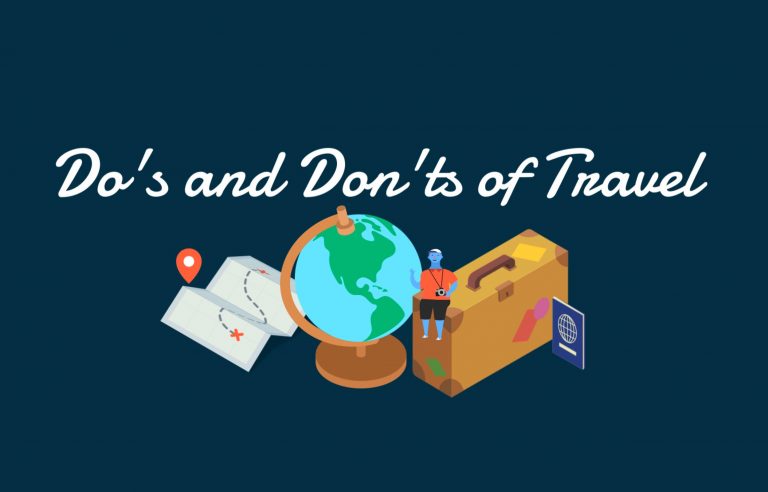Zombie Bunny is Reader-supported and may earn an affiliate commission through links on our site.

Bored at Work? Revolutionize Your Career Now!
Revolutionize your career and overcome work boredom with this comprehensive guide, offering insights on identifying passions, improving skills, and navigating career changes.
Are you stuck in a career rut, feeling uninspired and unfulfilled? This blog post is your comprehensive guide to revolutionizing your professional life. It explores the concept of work boredom and its impact on your personal and professional growth. You’ll learn how to identify your passions, upgrade your skills, network effectively, and navigate a career change successfully. Moreover, you’ll gain insights into maintaining a healthy work-life balance, mastering resilience, embracing continuous improvement, and maintaining your mental health – all critical aspects of a thriving career. If you’re ready to bid farewell to work boredom and embark on a journey towards a fulfilling career, this blog is your perfect starting point.
Introduction

© Copyright , ZombieBunny.Org
Understanding the problem of work boredom
Work boredom isn’t merely a fleeting feeling that arises when tasks get a little mundane. It’s a pervasive sense of dissatisfaction and disinterest, a career crisis that can be detrimental to both personal and professional growth. It’s the lingering dread that makes Monday mornings tough and Fridays the only beacon of hope. This feeling of being stuck in a hamster wheel, doing the same tasks day in and day out with no sense of fulfillment, is a clear sign of work boredom.
In today’s dynamic and challenging work environment, succumbing to such stagnation can be detrimental. Work boredom doesn’t just rob you of productivity, but also of the joy and satisfaction that should ideally come with accomplishment. It’s a silent career killer that slowly but surely chips away at your motivation, enthusiasm, and ultimately, performance. Recognizing and addressing this issue is the first step to revolutionizing your career and transforming your professional life. Don’t let work boredom dictate your career trajectory. It’s time to take control, reignite your passion, and set yourself on the path to a fulfilling career.
The need for career revolution
In this ever-evolving world, settling for a career that doesn’t inspire or challenge you is no longer an option. The constant feeling of being unstimulated at work is a clear signal that it’s time for a career revolution. This is not just about finding a new job, it’s about reinventing your professional life, aligning it with your passions, and truly carving a path that brings you satisfaction and success.
Career revolution is more than just a drastic change. It’s a process of self-discovery, skill enhancement, and networking that propels you towards a career that resonates with your interests and aspirations. It’s about breaking free from the chains of work boredom and creating a career that not only pays the bills but also fuels your passion. The need for this revolution comes from the desire to live more than just a paycheck-to-paycheck life. It’s about finding fulfillment in what you do, challenging yourself, and constantly growing and evolving professionally.
Embracing a career revolution can lead to higher job satisfaction, improved mental health, and an overall better quality of life. It’s about taking charge of your professional life and turning it into a journey that brings you joy and pride. Don’t let the fear of change hold you back. The time to revolutionize your career is now.
Why read this blog?
In the maze of career advice, you might wonder, why read this blog? This blog is not just another piece of advice; it’s a comprehensive guide to revolutionizing your career. It’s for those who are tired of feeling uninspired, unfulfilled, and bored at work. It’s for those who yearn to transform their professional lives, to find a career that they are passionate about and that motivates them to strive for excellence.
This blog post will provide you with the tools and strategies to take control of your career. It will help you identify your passions, upgrade your skills, network effectively, and navigate your career change successfully. It will empower you to step out of your comfort zone and explore new professional realms. The guidance offered here is aimed at helping you find a more satisfying, rewarding, and exciting career.
By reading this blog, you will gain insights into maintaining a healthy work-life balance, mastering resilience, embracing continuous improvement, and maintaining your mental health – all critical aspects of a thriving career. The information and tips provided here are designed to ignite your professional growth and lead you to a career that’s in alignment with your personal goals and aspirations. So, if you’re ready to bid farewell to work boredom and embark on a journey towards a revolutionized career, this blog is the perfect starting point.
Identify Your Passion

© Copyright , ZombieBunny.Org
Reconnecting with your interests
At the center of a fulfilling career lies a deep connection with your interests. Over time, the monotony of work can cause us to lose touch with our passions, making our jobs feel more like a chore than a source of satisfaction. To revolutionize your career, start by reconnecting with your interests. What is it that truly excites you? What activities make you lose track of time? What did you love doing as a child? The answers to these questions can provide valuable insights into your passions.
Rediscovering your interests is about more than just daydreaming about hobbies. It’s about actively seeking out and engaging in activities that stimulate your mind and invigorate your spirit. Whether it’s painting, writing, coding, designing, or anything else, make time for these activities in your day-to-day life. They will not only break the monotony of routine but also rekindle your creative spark, paving the way for innovative ideas and a fresh perspective.
Embracing your interests can also provide you with a sense of purpose and direction. It can fuel your motivation, enhance your productivity, and make your work more enjoyable. So, take the time to delve into your interests, for they hold the key to a career that’s not only successful but also personally fulfilling and truly satisfying. Remember, a career revolution starts with you – with your interests, your passions, and your zeal to create a professional life that truly resonates with you.
Transforming hobbies into careers
Turning hobbies into careers might sound like a far-fetched dream, but in today’s flexible and diverse job market, it’s more attainable than you might think. When you enjoy something, you’re naturally inclined to invest more time and energy into it, often leading to the development of skills that can be valuable in a professional setting. If you’re passionate about writing, for instance, consider how you could use that passion in a career as a content creator, copywriter, or editor.
Start by examining your hobbies and identifying the skills they involve. A love for painting might translate into skills in creativity, attention to detail, and patience – all valuable in a range of careers. Once you’ve identified these skills, investigate careers that align with them. This doesn’t necessarily mean you need to become a professional painter, but there might be careers that utilize the same skills and bring you a similar level of joy and satisfaction.
Remember, transforming hobbies into careers is a process. It requires planning, research, and often, further training or education. But the result – a career that you’re genuinely passionate about – is well worth the effort. So, don’t be afraid to dream big and explore the potential of your hobbies. With the right approach and a little courage, you can turn your passion into your profession and revolutionize your career.
The role of passion in job satisfaction
Passion is the fuel that drives satisfaction in any endeavor, and your job is no exception. When you’re passionate about what you do, it no longer feels like work. Instead, it becomes a source of joy, fulfillment, and personal achievement. Passion invigorates your work days, making them more engaging and rewarding. It brings purpose to your tasks, motivates you to overcome challenges, and ignites your drive to excel.
A job that aligns with your passions can provide more than just monetary rewards. It can give you a sense of satisfaction that transcends the material benefits of work. Passion can make you eager to learn, innovate, and contribute, leading to personal growth and professional advancement. Moreover, when you’re passionate about your work, it’s likely to reflect in your performance, resulting in recognition and success.
However, passion in your career is not about constant excitement or the absence of challenges. It’s about finding fulfillment in overcoming those challenges because you care deeply about what you’re doing. It’s about the sense of accomplishment that comes from doing something you love and doing it well. So, as you aim to revolutionize your career, let your passions guide your way. A career driven by passion can bring you the job satisfaction you seek and set you on the path to a fulfilling professional life.
Upgrade Your Skills

© Copyright , ZombieBunny.Org
The importance of lifelong learning
In the fast-paced world we inhabit, change is the only constant. To keep up with these changes, especially in the professional realm, lifelong learning becomes imperative. It is no longer sufficient to rely solely on the skills and knowledge acquired during formal education. Continual learning is the key to staying relevant and competitive in today’s dynamic job market.
Lifelong learning enhances your employability by equipping you with a diverse set of skills. It helps you adapt to changes in your industry, providing you with the tools to seize new opportunities as they arise. Furthermore, it fosters personal growth and development, enhancing your problem-solving capabilities, creativity, and critical thinking skills.
Committing to lifelong learning illustrates a proactive attitude and a willingness to step out of your comfort zone – qualities that are highly prized by employers. It also aids in career advancement, paving the way for promotions, pay raises, and new job opportunities. Whether it’s learning a new software, acquiring a new language, or simply staying updated with industry trends, lifelong learning can significantly elevate your career. So, if you’re looking to revolutionize your career, make learning a lifelong pursuit. The knowledge and skills you acquire will not only stave off work boredom but also empower you to take your career to new heights.
Resources for skill development
In the era of the internet, resources for skill development are abundant and easily accessible. Websites like Coursera, Udemy, and LinkedIn Learning offer a vast array of online courses across diverse fields. Whether you want to enhance your coding skills, learn digital marketing, or master a new language, these platforms have got you covered. They allow you to learn at your own pace, from the comfort of your home, making skill development feasible alongside a full-time job.
In addition to online courses, webinars and workshops hosted by industry experts are also a great way to upskill. They offer the opportunity to learn from and interact with professionals in your field, providing you with valuable insights and experience. Podcasts and TED Talks can also serve as a resource for learning, offering knowledge and motivation on the go.
Books, too, remain a timeless resource for skill development. They can provide in-depth knowledge and insights into various fields and are readily available in both physical and digital formats. Furthermore, networking events and professional groups can offer opportunities for experiential learning and mentorship.
Remember, the resource you choose should align with your learning style, career goals, and the skills you wish to acquire. So, take advantage of these resources, invest in your skill development, and open the doors to a revolutionized career. Your commitment to learning can turn your professional life from mundane to exciting and rewarding.
How upgraded skills lead to career growth
As you navigate your career path, the skills you acquire play a significant role in determining your professional growth. Upgraded skills not only enhance your ability to perform your current job but also open up new career opportunities. They provide you with a competitive edge, making you a more valuable asset to your organization and increasing your marketability in the job market.
When you upgrade your skills, you demonstrate a commitment to your career growth. You show that you are not content with the status quo and are willing to invest time and effort into your personal and professional development. This can lead to greater job security, as employers often value employees who show initiative and a desire to improve.
Furthermore, acquiring new skills can lead to new responsibilities and roles within your organization, paving the way for promotions or a career shift. It can also boost your confidence, enhance your productivity, and improve your job satisfaction. Whether it’s learning a new software, mastering a new technique in your field, or improving your communication skills, every new skill acquired is a step towards a more fulfilling and successful career.
In conclusion, upgrading your skills is a worthwhile investment. It’s a catalyst for career growth and a vital part of career revolution. So, make skill development a priority, and watch your career soar to new heights.
Networking For Opportunities

© Copyright , ZombieBunny.Org
The power of professional networking
Professional networking is a powerful tool in any career revolution journey. It isn’t just about exchanging business cards or adding connections on LinkedIn. It’s about building and nurturing relationships that can provide support, insight, and opportunities throughout your career. In a world where who you know can be just as important as what you know, networking can open doors that might otherwise remain closed.
Networking can help you gain industry insights, advice, and perspectives that you might not find elsewhere. It can also provide access to job opportunities that aren’t publicly advertised. In fact, many job vacancies are filled through networking, making it an essential tool for career advancement. Moreover, networking can help you establish your personal brand, increase your industry visibility, and build a reputation as a knowledgeable and motivated professional.
Furthermore, networking isn’t just about receiving – it’s about giving as well. As you build your network, you also have the opportunity to help others. Sharing your knowledge and insights, supporting your connections in their endeavors, or introducing them to other contacts can be deeply satisfying and can strengthen your professional relationships.
In essence, networking is a valuable investment in your career. It can provide you with the resources, opportunities, and support you need to revolutionize your career. So, start building your network today – you never know where your next connection could lead you.
Platforms for networking
In today’s digital age, networking has gone beyond traditional face-to-face interactions. Numerous platforms exist for networking that can help you connect with professionals within your industry and beyond. LinkedIn, the most popular professional networking platform, allows you to connect with colleagues, industry leaders, and potential employers. It’s an excellent resource for sharing your professional achievements, joining industry-specific groups, and staying updated with the latest industry trends.
Apart from LinkedIn, platforms like Twitter and Facebook also offer opportunities for professional networking. You can follow industry leaders, join relevant groups, and participate in discussions. Websites like Meetup can help you find and join professional groups and events in your area, providing opportunities for face-to-face networking.
For those in creative fields, platforms like Behance and Dribbble can be invaluable. They allow you to showcase your work, gain inspiration, and connect with other creatives. For those in tech, GitHub provides an opportunity to collaborate on projects and network with other programmers.
Remember, effective networking isn’t about the number of connections you have, but about the quality of those connections. It’s about building meaningful relationships, engaging in valuable discussions, and offering your own insights and support. Regardless of the platform you choose, be genuine, be active, and be generous in your interactions. With the right approach, these networking platforms can be a powerful tool in your career revolution.
Making your network work for you
Having a vast network is beneficial, but making that network work for you is where the true value lies. It’s not just about collecting contacts; it’s about nurturing relationships and leveraging these connections to benefit your career. To make your network work for you, start by being an active participant. Engage with your contacts regularly, share insightful content, and contribute to discussions. This not only keeps you top-of-mind among your network but also showcases your knowledge and expertise.
Don’t hesitate to reach out to your network when you’re looking for opportunities or need advice. People generally like to help others, especially those they have a relationship with. However, remember that networking is a two-way street. Be ready to offer assistance and support to your contacts when they need it, even if there’s no immediate benefit to you. This generosity can build goodwill and strengthen your relationships.
Furthermore, use your network to expand your industry knowledge. Follow industry leaders, join relevant groups, and stay updated with the latest news and trends. This can provide you with valuable insights and make you a more informed and prepared professional.
In essence, making your network work for you requires active engagement, reciprocity, and a genuine desire to build and maintain professional relationships. With these elements in place, your network can be a powerful resource in your journey to revolutionize your career.
Navigating Career Change

© Copyright , ZombieBunny.Org
Steps to a successful career change
A successful career change is not a leap into the unknown, but a calculated move guided by careful planning and preparation. The first step is self-assessment. Understand what you want from your career, your interests, skills, and values. This will provide a clear direction for your career change.
Next, research your desired field extensively. Understand the job market, the required skills, and the potential opportunities. Use your network to gain insights and advice. This will help you make an informed decision and prepare for the transition.
Once you’ve decided on your new career, focus on acquiring the necessary skills. This may involve further education or training. Online courses, workshops, and industry certifications can be valuable resources in this regard.
Before making the final leap, consider gaining some experience in your new field. This could be through internships, part-time jobs, or even volunteering. It provides a taste of the new career and helps you build relevant experience.
Finally, be prepared for challenges. Career change is a significant move and can involve initial setbacks. However, don’t let these deter you. Remain focused on your goal, stay flexible, and keep learning.
A career change can be an exciting journey, leading to a fulfilling and satisfying professional life. So, if you’re bored at work, don’t hesitate to take the plunge. With the right approach, you can successfully navigate your career change and revolutionize your career.
Overcoming fear during career transition
Fear is a natural emotion during a career transition. The unknown can be intimidating, and change, even when it’s for the better, can be unsettling. However, overcoming this fear is crucial to successfully revolutionize your career. Start by acknowledging your fear. Understand that it’s a normal part of the process, and it doesn’t signify weakness or incapability.
Once you’ve acknowledged your fear, take steps to manage it. This begins with thorough preparation. The more you know about your new career, the less intimidating it will seem. Research extensively, enhance your skills, and gain some experience. Having a solid plan can also alleviate fear. Define clear, actionable steps for your career transition and stick to them.
Seek support from your network. Sharing your fears and concerns with others can provide reassurance and valuable advice. Remember, many have navigated career transitions successfully, and their experiences can provide helpful insights.
Lastly, maintain a positive mindset. Embrace the change as an opportunity for growth and new experiences. Focus on the potential benefits of the career change, such as increased job satisfaction, new challenges, and personal growth.
Overcoming fear is an integral part of a career transition. It’s about turning fear into motivation, uncertainty into determination. With courage and preparation, you can navigate the career transition successfully and revolutionize your professional life.
Finding satisfaction in your new career
After making the leap to a new career, finding satisfaction in your new role is crucial. Satisfaction comes from more than just a paycheck. It comes from feeling valued, being challenged, and seeing the impact of your work. To find satisfaction in your new career, it’s essential to align your work with your passions, skills, and values. When you love what you do, and it resonates with who you are, satisfaction naturally follows.
Stay engaged and active in your new role. Seek out opportunities to learn and grow. The sense of progress and achievement can significantly contribute to job satisfaction. Also, build positive relationships at work. A supportive and collaborative work environment can make your work experience more enjoyable and satisfying.
Remember to maintain a work-life balance. Overwork can lead to burnout, which can rob you of the joy in your job. Make time for relaxation, hobbies, and relationships outside of work. A balanced life can contribute to job satisfaction and overall happiness.
Finally, don’t forget to celebrate your successes, no matter how small. Each achievement is a testament to your courage in making a career change and a step towards a more fulfilling professional life.
Finding satisfaction in your new career is about more than just doing your job. It’s about embracing the journey, learning from the challenges, and celebrating the victories. It’s the key to turning a career change into a successful career revolution.
Balancing Work and Life

© Copyright , ZombieBunny.Org
Understanding the work-life balance
Work-life balance is a concept that emphasizes the importance of maintaining a healthy equilibrium between professional responsibilities and personal life. It is about creating a harmonious blend of work and personal activities, ensuring neither dominates your life. Achieving a balanced work-life can enhance your mental well-being, boost productivity, and enrich your overall quality of life.
Understanding work-life balance begins with acknowledging that both work and personal life are essential and that neglecting one for the other can lead to stress, burnout, and dissatisfaction. It’s crucial to set boundaries between your work and personal life. This might mean designating specific work hours, avoiding work-related activities during your personal time, and ensuring your personal life is given the attention it deserves.
Work-life balance also involves taking care of your physical and mental health. Regular exercise, a healthy diet, adequate sleep, and mindfulness practices can go a long way in maintaining your well-being. It’s also important to make time for hobbies, relationships, and relaxation. These activities provide a much-needed break from work and can rejuvenate your mind and body.
Remember, work-life balance is not a one-size-fits-all concept. What works for one person might not work for another. So, it’s essential to find a balance that suits your needs and lifestyle. Achieving a healthy work-life balance is a critical component in revolutionizing your career and creating a professional life that’s fulfilling and satisfying.
Implementing work-life balance strategies
Implementing work-life balance strategies is a proactive step towards a healthier, more fulfilling professional and personal life. One effective strategy is time management. Prioritize your tasks, set realistic goals, and avoid unnecessary distractions. This can help you work more efficiently, freeing up time for personal activities.
Setting boundaries is another crucial strategy. This could mean turning off work emails after a certain hour, not bringing work home, or simply designating specific times for personal activities. Clear boundaries can help prevent work from encroaching on your personal life.
Don’t forget to prioritize self-care. Regular exercise, a healthy diet, and adequate sleep can boost your energy levels and productivity. Mindfulness practices, such as meditation or yoga, can help manage stress and promote mental well-being.
Remember to make time for activities that you enjoy. Hobbies, relationships, and relaxation are just as important as work. They provide a break from work-related stress and can recharge your mind and body.
Lastly, don’t hesitate to seek support if you’re struggling to maintain work-life balance. This could be from a mentor, a counselor, or even a supportive friend or family member. Remember, achieving work-life balance is a journey, not a destination. It requires continuous effort and adjustments along the way. With the right strategies, you can achieve a work-life balance that enhances your career satisfaction and enriches your personal life.
Work-life balance for career longevity
A healthy work-life balance is not just beneficial for your present situation, but it’s also a significant contributor to career longevity. When you manage to balance your professional responsibilities with your personal life effectively, you’re less likely to experience burnout, a state of chronic physical and emotional exhaustion often associated with high job stress. By preventing burnout, you can maintain a consistent level of performance and satisfaction in your career for a longer period.
A good work-life balance allows you to invest time in personal growth and hobbies, which can contribute to a more enriched life and can often enhance your professional skills indirectly. For example, a hobby in blogging can improve your writing and communication skills, valuable in almost every professional field.
Prioritizing personal relationships and health as part of your work-life balance also plays a significant role in career longevity. Strong personal relationships can provide emotional support and stress relief, while good physical health can keep you energetic and productive.
In essence, achieving a work-life balance is like making a long-term investment in your career. It fosters a sustainable work pattern that can lead to consistent performance, job satisfaction, and ultimately, a long and successful career. So, if career longevity is your goal, start by creating a work-life balance that suits your needs and preferences. It could be the key to a fulfilling and enduring career.
Mastering the Art of Resilience

© Copyright , ZombieBunny.Org
The role of resilience in career success
Resilience, the ability to bounce back from setbacks and adapt to change, plays a crucial role in career success. In a dynamic professional landscape filled with challenges and uncertainties, resilience allows you to navigate difficulties, learn from failures, and turn obstacles into opportunities. It’s the trait that keeps you moving forward in the face of adversity.
A resilient mindset can turn failures into valuable learning experiences. Instead of being demotivated by setbacks, resilient individuals view them as opportunities to grow and improve. They understand that failure is not the opposite of success, but a stepping stone towards it.
Resilience also fosters adaptability, a highly prized trait in the modern workplace. As industries evolve, new challenges arise, and job roles change, the ability to adapt and evolve is critical. Resilient individuals are not only capable of handling these changes, but they can also thrive amidst them.
Moreover, resilience can enhance stress management, preventing burnout and maintaining mental well-being. It can help you keep a positive perspective during tough times, boosting morale and motivation.
In essence, resilience is a key ingredient in the recipe for career success. It fuels persistence, learning, and growth, propelling you towards your career goals. So, as you strive to revolutionize your career, don’t forget to master the art of resilience. It could be the driving force behind your career success.
Strategies to build resilience
Building resilience is a proactive step towards enhancing your career success. One effective strategy to build resilience is to maintain a positive mindset. Positivity can help you view challenges as opportunities rather than threats. It can encourage you to focus on solutions instead of dwelling on problems, fostering a sense of control and confidence.
Another strategy is to embrace failure as a learning opportunity. Instead of viewing failure as a setback, see it as a stepping stone towards success. Learn from your mistakes, adjust your strategies, and move forward with more knowledge and experience.
Self-care is also an essential part of building resilience. Regular exercise, a healthy diet, and adequate sleep can boost your physical health, making you more resilient to stress. Mindfulness practices, such as meditation or yoga, can enhance your mental resilience, helping you stay calm and focused in the face of adversity.
Building a supportive network can also enhance resilience. Having people you can turn to for advice, encouragement, or simply a listening ear can make challenges more manageable.
Finally, remember that resilience is a skill that can be developed over time. It requires patience, practice, and perseverance. So, start implementing these strategies today, and over time, you’ll find yourself better equipped to handle the ups and downs of your career, setting the stage for long-term career success.
Success stories of career resilience
Resilience has been the driving force behind many successful career stories. Steve Jobs, co-founder of Apple, is one such example. After being ousted from his own company, Jobs didn’t give up. He went on to found NeXT and Pixar, and eventually returned to Apple, leading it to become one of the most successful tech companies in the world. His resilience in the face of adversity is a testament to the power of bouncing back and using setbacks as stepping stones to success.
Another inspiring story of career resilience is that of J.K. Rowling, the author of the Harry Potter series. Before her rise to fame, Rowling faced numerous rejections from publishers. Despite these setbacks, she persisted, and her resilience paid off when her book was finally published, leading to a highly successful career as an author.
These success stories highlight the power of resilience in navigating career challenges. They demonstrate that setbacks and failures are not the end, but rather, opportunities for growth and learning. They show that with resilience, persistence, and a positive attitude, you can overcome adversity and achieve career success.
So, if you’re looking to revolutionize your career, take inspiration from these success stories. Embrace resilience as your ally in your career journey. It could be the key to transforming your professional life from mundane to extraordinary.
Embrace Continuous Improvement

© Copyright , ZombieBunny.Org
Importance of continuous improvement in career
In an ever-evolving professional landscape, continuous improvement is not just a desire but a necessity for career success. Embracing continuous improvement means always seeking ways to enhance your skills, knowledge, and performance. It’s about being a lifelong learner, staying adaptable, and striving for excellence in your career.
Continuous improvement can boost your job performance, making you a more valuable asset to your organization. By constantly upgrading your skills and knowledge, you can stay ahead of industry trends and changes, ensuring you remain relevant and competitive in your field.
Furthermore, continuous improvement can enhance job satisfaction. Learning new things, overcoming challenges, and achieving personal and professional growth can make your work more enjoyable and rewarding. It can provide a sense of accomplishment and motivation, fueling your passion for your work.
Continuous improvement also opens up new career opportunities. It can lead to promotions, career advancements, or even a successful career change. It equips you with a diverse set of skills and experiences, making you a more versatile and attractive candidate in the job market.
In essence, continuous improvement is a key ingredient in the recipe for a successful and fulfilling career. It’s about turning your professional life from a static routine into a dynamic journey of growth and learning. So, if you’re seeking to revolutionize your career, embrace continuous improvement as your mantra. It could be the catalyst for your career success.
Methods for continuous self-improvement
Continuous self-improvement requires a proactive and consistent approach. One method is lifelong learning. This could involve enrolling in courses, attending workshops, or simply reading books related to your field. Online learning platforms, like Coursera and Udemy, offer a wide range of courses that can help you upgrade your skills and knowledge.
Another method is seeking feedback. Constructive feedback can provide valuable insights into your strengths and areas for improvement. Don’t shy away from criticism; instead, view it as an opportunity to learn and grow.
Setting personal goals and challenges can also foster continuous self-improvement. They can motivate you to push your boundaries, explore new areas, and strive for higher standards in your work.
Moreover, networking can contribute to self-improvement. Interacting with professionals from your field can provide new perspectives, insights, and ideas. It can also keep you updated with industry trends and changes.
Lastly, remember to reflect on your progress. Take time to review your achievements, learn from your mistakes, and plan your future learning path. This can help you stay focused on your improvement journey and make necessary adjustments along the way.
In essence, continuous self-improvement is about being an active participant in your growth and learning. With consistent effort and the right methods, you can continually enhance your skills, performance, and career prospects, setting the stage for a successful career revolution.
How continuous improvement impacts career?
Continuous improvement can significantly impact your career in multiple ways. By consistently upgrading your skills and knowledge, you can enhance your job performance and productivity. This can increase your value in your organization, potentially leading to promotions and career advancements.
Continuous improvement can also improve your adaptability. In a rapidly changing professional landscape, being adaptable is a critical asset. It can help you navigate industry changes, adopt new technologies, and adjust to new job roles or responsibilities. This adaptability can make you a more versatile professional, opening up a wide range of career opportunities.
Furthermore, continuous improvement can boost your job satisfaction. The process of learning, growing, and overcoming challenges can make your work more rewarding and enjoyable. It provides a sense of achievement and purpose, making your professional life more fulfilling.
Continuous improvement can also enhance your professional reputation. It demonstrates your commitment to excellence, your initiative, and your drive for growth. This can make you stand out in your field, enhancing your professional visibility and credibility.
In essence, continuous improvement can propel your career forward. It can turn your professional life from a static routine into a dynamic journey of growth and success. So, if you’re looking to revolutionize your career, embracing continuous improvement could be the key to unlocking your career potential.
Maintaining Mental Health

© Copyright , ZombieBunny.Org
The connection between work and mental health
The connection between work and mental health is profound and bidirectional. On one hand, a healthy work environment can enhance mental well-being, boost self-esteem, and provide a sense of purpose. On the other hand, a stressful work environment can lead to mental health issues like anxiety, depression, and burnout.
Work-related stress can result from various factors such as high job demands, lack of control over work, poor interpersonal relationships, job insecurity, and work-life imbalance. These stressors can negatively impact mental health, leading to decreased productivity, job satisfaction, and overall quality of life.
However, it’s not all negative. Work can also be a source of mental well-being. It provides structure to daily routine, opportunities for social interaction, and a sense of achievement. When you find satisfaction and fulfillment in your work, it can significantly contribute to your mental health.
Moreover, supportive workplace practices like flexible work hours, mental health policies, and a positive work culture can promote mental health and foster resilience among employees.
In essence, work and mental health are intricately linked. As such, maintaining mental health should be a priority in your quest to revolutionize your career. Remember, a healthy mind is not only essential for your overall well-being but also a key driver of career success.
Techniques to maintain good mental health
Maintaining good mental health is crucial for a fulfilling and successful career. One effective technique is mindfulness. Practicing mindfulness, such as meditation or deep-breathing exercises, can help reduce stress, improve focus, and enhance emotional well-being.
Another technique is maintaining a work-life balance. Ensure that your work does not encroach on your personal life. Make time for hobbies, relationships, and relaxation. A balanced life can help prevent burnout and boost mental health.
Physical health is also linked to mental health. Regular exercise, a healthy diet, and adequate sleep can improve your mood, reduce anxiety, and boost mental well-being.
Furthermore, don’t hesitate to seek help when needed. If you’re feeling overwhelmed by work-related stress or facing mental health issues, reach out to a mental health professional. Early intervention can prevent further deterioration and promote recovery.
Lastly, maintain a positive mindset. Focus on the positives, appreciate your achievements, and use challenges as opportunities for growth. A positive outlook can boost your morale, motivation, and mental health.
In essence, maintaining good mental health requires continuous effort, self-care, and a proactive approach. As you strive to revolutionize your career, remember to prioritize your mental health. After all, a healthy mind is the backbone of a successful career.
Effect of good mental health on career
Good mental health can significantly impact your career in multiple positive ways. A healthy mental state can enhance productivity, creativity, and the ability to cope with stress. It can improve your decision-making skills, attention span, and overall job performance, setting the stage for career success.
Good mental health can also boost job satisfaction. When you’re mentally healthy, you’re more likely to find joy and fulfillment in your work. You can better appreciate your achievements, stay motivated, and maintain a positive attitude towards your job.
Moreover, good mental health can enhance interpersonal relationships at work. It can improve your communication skills, empathy, and teamwork, contributing to a positive work environment. It can also make you more resilient, helping you bounce back from setbacks and adapt to changes more effectively.
Furthermore, good mental health can open up new career opportunities. It can enhance your confidence, allowing you to take on new challenges, seek promotions, or even make a successful career change. It can also enhance your professional reputation, making you a more attractive candidate in the job market.
In essence, good mental health is a key driver of career success. It can turn your professional life from a mere job into a fulfilling and rewarding career. So, as you look to revolutionize your career, remember to prioritize your mental health. It could be the key to unlocking your true career potential.
Conclusion

© Copyright , ZombieBunny.Org
Recap of career revolution strategies
Revolutionizing your career is a multifaceted process that involves various strategies. Overcoming fear during career transition, for instance, is crucial to navigate change successfully. It involves acknowledging your fear, preparing thoroughly, seeking support, and maintaining a positive mindset.
Finding satisfaction in your new career is another key strategy. It involves aligning your work with your passions and values, staying engaged, building positive relationships, and maintaining a work-life balance. Work-life balance, in fact, plays a vital role in career longevity. It involves setting boundaries, prioritizing personal life and health, and finding a balance that suits your lifestyle.
Mastering the art of resilience is another crucial strategy for career success. This involves maintaining a positive mindset, embracing failure as a learning opportunity, prioritizing self-care, building a supportive network, and practicing patience, and perseverance.
Embracing continuous improvement is a key strategy for career success and longevity. It involves lifelong learning, seeking feedback, setting personal goals, networking, and reflective practice.
Lastly, maintaining good mental health is vital for a fulfilling and successful career. This involves practicing mindfulness, maintaining a work-life balance, prioritizing physical health, seeking help when needed, and maintaining a positive mindset.
Each of these strategies plays a crucial role in revolutionizing your career. They can turn your professional life from a static routine into a dynamic journey of growth and success. So, as you seek to revolutionize your career, keep these strategies in mind. They could be the catalysts for your career transformation.
Benefits of a revolutionized career
A revolutionized career can bring numerous benefits, enhancing both your professional and personal life. One of the most significant benefits is increased job satisfaction. When your career aligns with your passions, skills, and values, work becomes more enjoyable and fulfilling. It provides a sense of achievement and purpose, enhancing your overall quality of life.
A revolutionized career can also open up new opportunities for growth and learning. It allows you to challenge yourself, acquire new skills, and broaden your perspectives. This continuous learning can boost your adaptability, making you more versatile and competitive in the job market.
Moreover, a revolutionized career can enhance your mental health. A satisfying and fulfilling career can boost your self-esteem, reduce stress, and promote mental well-being. It can also prevent burnout, ensuring you maintain a consistent level of performance and productivity.
Finally, a revolutionized career can enhance your professional reputation and credibility. It demonstrates your commitment to growth, learning, and excellence, making you stand out in your field.
In essence, a revolutionized career is about more than just a job. It’s about creating a fulfilling, rewarding, and sustainable professional life. So, if you’re bored at work, remember that you have the power to revolutionize your career. It could be the key to unlocking a professional life that’s not just successful, but also deeply satisfying and fulfilling.
Encouragement for career revolution
Revolutionizing your career might seem like a daunting task, but remember, it’s a journey, not a destination. It’s about making small, consistent efforts towards growth and improvement. So, take that first step, no matter how small. Start by identifying your passions, skills, and career goals. Then, gradually implement strategies like maintaining a work-life balance, mastering resilience, embracing continuous improvement, and maintaining mental health.
Along the way, don’t be disheartened by setbacks or failures. They’re part of the journey and can provide valuable learning opportunities. Stay resilient, keep a positive outlook, and remember to celebrate your progress, no matter how small.
Also, don’t hesitate to seek support. This could be from a mentor, a counselor, or a supportive friend or family member. Remember, you’re not alone in this journey. There are resources and people out there who can help.
Furthermore, keep the benefits of a revolutionized career in mind. It’s not just about a job, but about a fulfilling, rewarding, and sustainable professional life. A revolutionized career can bring increased job satisfaction, new learning opportunities, enhanced mental health, and a boost to your professional reputation.
So, if you’re bored at work, remember this: You have the power to revolutionize your career. It might require effort and patience, but the rewards can be truly transformative. So, take that first step towards your career revolution today. You’ve got this!
Please support our site and purchase something from our store.







